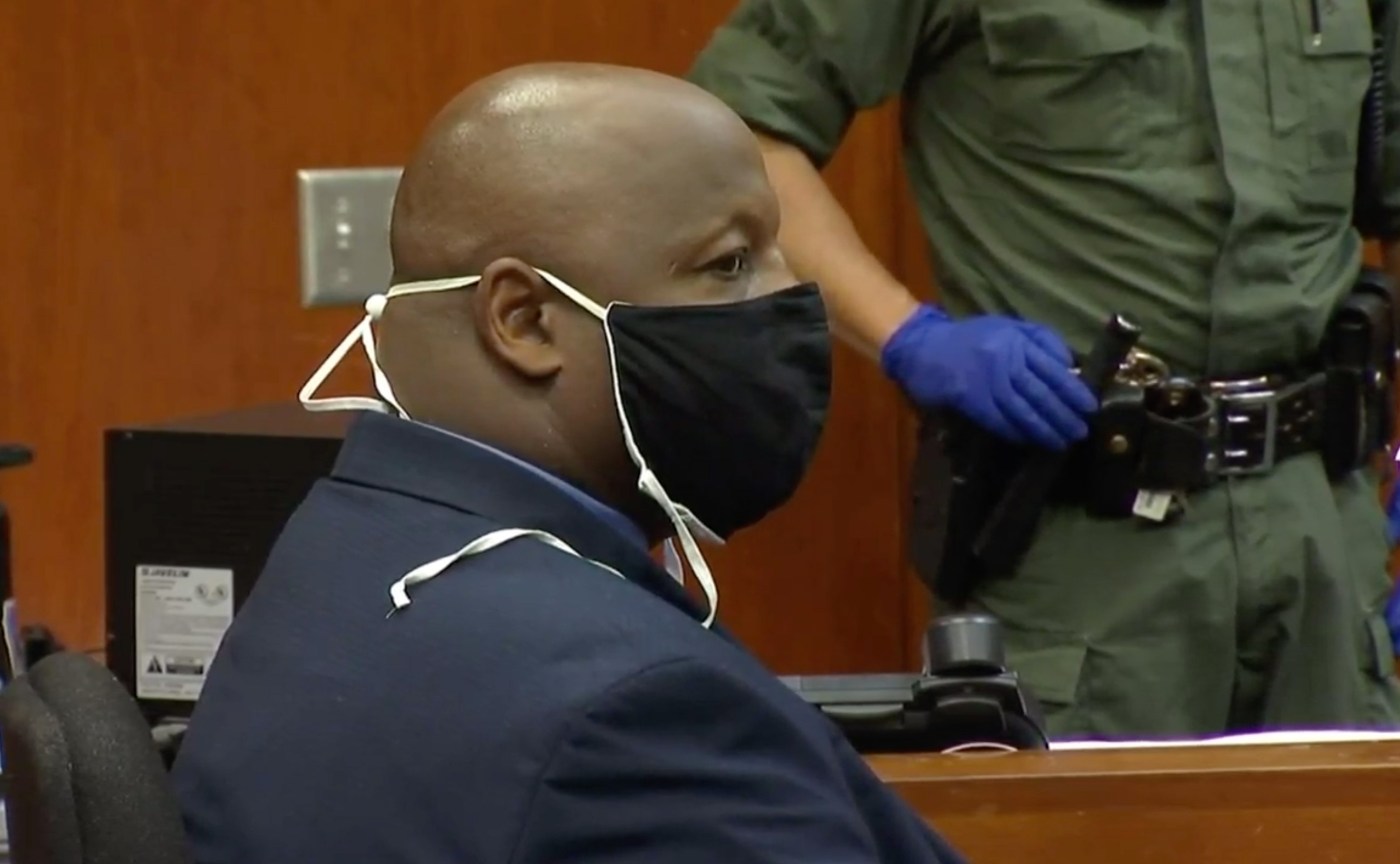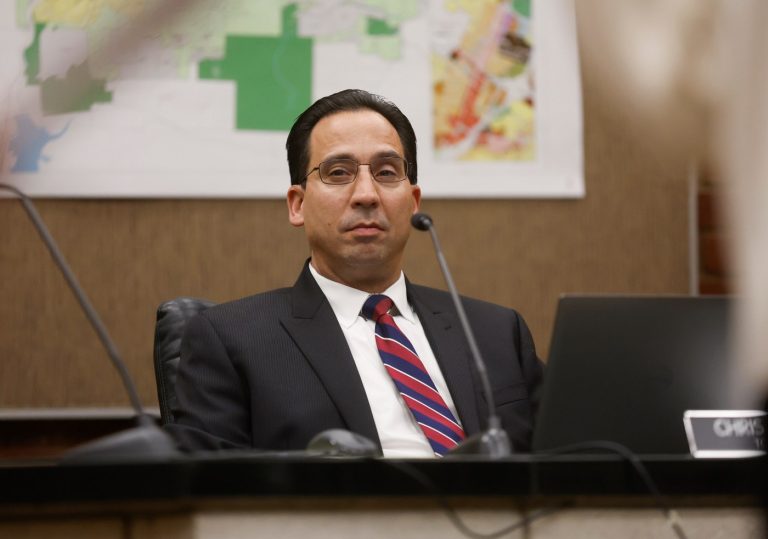SAN JOSE — Former San Francisco 49ers star Dana Stubblefield will spend the next two weeks in a Santa Clara County jail while his attorneys push for his release following an appellate court’s decision last week to to reverse his 2020 rape conviction.
Stubblefield is being held in local custody after being transferred from Corcoran State Prison, where he was three years into a 15-years-to-life term when the Sixth District Court of Appeal on Dec. 26 vacated a jury’s verdict and the subsequent sentence.
The three-judge appellate panel concluded that the conviction was “legally invalid” after finding that the Santa Clara County District Attorney’s Office violated the Racial Justice Act when a prosecutor suggested to jurors in closing arguments that police opted not to search Stubblefield’s home for a gun because he was a famous Black man.
The appellate ruling concluded that because of this strategic decision, race expressly affected the availability of evidence, be it incriminating or exonerating, for the jury to consider in determining Stubblefield’s guilt. He had been charged with using a gun to threaten then rape a woman who had come to his Morgan Hill home to interview for a babysitting job in 2015.
Stubblefield — who played for the 49ers from 1993 to 2001 and was NFL Defensive Player of the Year in 1997 — was not in court Friday for a hearing during which Judge Hector Ramon declined to order his release, saying that the case was still under the jurisdiction of the court of appeal. Ramon scheduled a court hearing for Jan. 17 in which he could make a custody ruling after hearing arguments between the defense team and the district attorney’s office.
Ken Rosenfeld, lead attorney for Stubblefield, said the unusual and historic nature of the appellate ruling should translate to his client’s swift release.
“When something is legally invalid, a man should not be in custody,” Rosenfeld said Friday.
Allen Sawyer, another attorney who defended Stubblefield at trial, added that even if prosecutors re-file charges — a decision unlikely to be made until after the appellate decision becomes final in February — Stubblefield is entitled to be released given there is no longer any conviction for which to keep him incarcerated.
“There’s no reason he shouldn’t be released, especially in light of the ruling,” Sawyer said.
Stubblefield and his defense team have long contended that he engaged in a paid sexual encounter with his accuser, identified in the appellate ruling as Jane Doe, and that he initially lied to cover up the tryst but never assaulted her. After the conviction was overturned, they reiterated their longstanding objection to the trial judge’s decision to keep Doe’s sexual history — which included a sexually explicit social media and internet presence and a reported admission to having performed sex work — from being fully presented to jurors at trial.
That and more than a dozen other trial issues raised by the defense were not addressed by the appellate court, in part because the reversal decision based on the Racial Justice Act violation eliminated the need to evaluate additional arguments.
The Racial Justice Act of 2020, authored by state Assemblymember Ash Kalra, D-San Jose, went into effect in 2021 and makes it illegal to obtain a conviction “on the basis of race, ethnicity, or national origin.” The law allows legal challenges to charges, convictions and sentences influenced by systemic bias.
The appellate ruling marked the first major case reversal in Santa Clara County citing the law. In nearby Contra Costa County, the act has been cited in at least three rulings that overturned serious charges, including murder convictions.
Justice Mary Greenwood, presiding judge for the appellate court and author of the Stubblefield ruling, referenced how Deputy District Attorney Tim McInerney, in his closing arguments in July 2020, said a police search of Stubblefield’s home in the early stages of the investigation “would have opened up ‘a storm of controversy,’ ” which the justice took as an implicit reference to civil unrest across the country over the police killing of George Floyd in Minneapolis in May 2020.
Greenwood wrote that the prosecution’s statement arguably leveraged the outrage over Floyd’s killing, “appealing to racially biased perceptions of those events and associating Stubblefield with them based on his race.”
Related Articles
Berkeley police investigating mother’s reports that two people tried to snatch her child
Suspect in 2023 East Bay homicide received 26-year prison term
Woman fatally shot at Oakland gas station
Wanted suspect runs across East Bay highway during police chase
A U.S. Army veteran’s path to radicalization followed divorces, struggling businesses in Texas
“Whether a search would have uncovered a gun or confirmed the absence of one, the argument meant Stubblefield’s race might well have impacted the state of the evidence, shifting the weight of it either against him or in his favor,” Greenwood wrote. “Using race in that fashion invited the listener to consider the fact that Stubblefield was a Black man in weighing the evidence.”
At trial, Doe testified that after she and Stubblefield finished an initial babysitter interview and she left his house, he texted her, saying he would like to pay her for having come up from Hollister. Doe had said that when she returned, he gave her $80, then locked the front door and carried her into a first-floor bedroom and assaulted her.
Stubblefield’s attorneys disputed Doe’s account and argued that the reason she returned to the home was to collect money for paid sex. After the trial, they emphasized that jurors rejected two felony charges alleging that Stubblefield exploited a woman who was too intellectually disabled to consent to sex.
When asked about whether Stubblefield might pursue civil litigation over his arrest and prosecution, Rosenfeld said that is not a priority at the moment.
“We’ll take a look at it, but my only concern from second one is protecting Dana Stubblefield and making sure he’s home with his family,” Rosenfeld said. “That’s all I’m thinking about.”
This is a developing report. Check back for updates.












